I have a simple invoker where, in order to be able to use a cache library , I need to know the name of the invoked method of an object that is a parameter of a Func delegate.
class Program
{
static void Main(string[] args)
{
var proxy = new Proxy();
Invoker.invoke(proxy, p => p.formatSomething("Dumb test"));
}
}
public class Proxy
{
public string formatSomething(string input){
return String.Format("-===={0}====-", input);
}
}
public static class Invoker
{
public static void invoke(Proxy proxy, Func<Proxy,string> online){
//Some caching logic that require the name of the method
//invoked on the proxy (in this specific case "formatSomething")
var methodName = ??;
if (IsCached(proxyName, methodName)){
output = GetFromCache(proxyName, methodName);
}else{
output = online(proxy);
}
}
}
These are some possible (bad) solutions:
Solution 1: Add a string parameter passing the method name (error prone)
public static class Invoker
{
public static void invoke(Proxy proxy, Func<Proxy,string> online, string methodName){
if (IsCached(proxyName, methodName)){
output = GetFromCache(proxyName, methodName);
}else{
output = online(proxy);
}
}
}
Solution 2: using Expression with possible performance issues.
public static class Invoker
{
public static void invoke(Proxy proxy, Expression<Func<Proxy,string>> online){
var methodName = ((MethodCallExpression)online.Body).Method.Name;
if (IsCached(proxyName, methodName)){
output = GetFromCache(proxyName, methodName);
}else{
output = online.Compile()(proxy);
}
}
}
Solution 3: using Expression as another parameter (error prone).
public static class Invoker
{
public static void invoke(Proxy proxy,Func<Proxy,string> online, Expression<Func<Proxy,string>> online2){
var methodName = ((MethodCallExpression)online2.Body).Method.Name;
if (IsCached(proxyName, methodName)){
output = GetFromCache(proxyName, methodName);
}else{
output = online(proxy);
}
}
}
Do you know any other better way to inspect and get the methodName the Invoker needs?
NOTE:
I'm not searching a caching mechanism for the online function result because I already have it.
The only problem is that this cache requires the proxy methodName invoked in the Func delegate.
